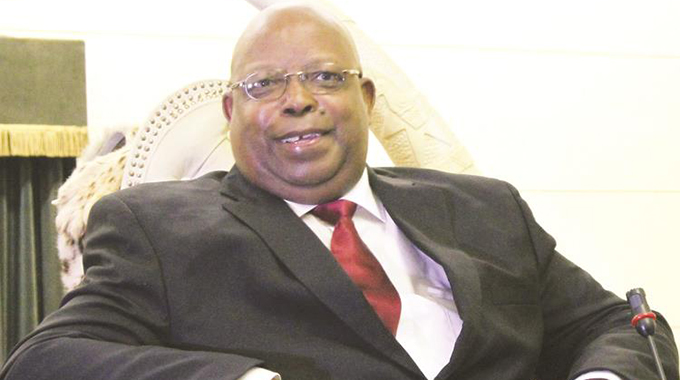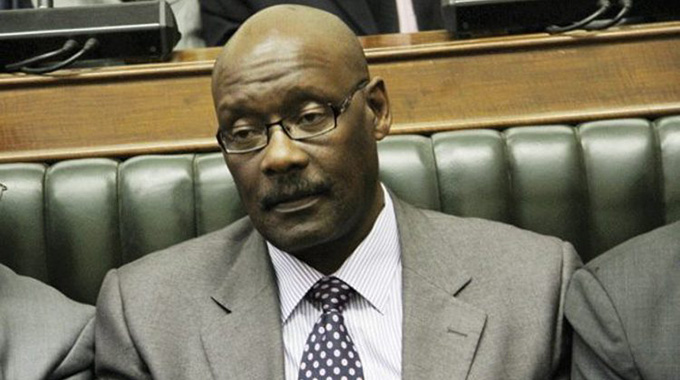More needed to invigorate reform bid

The lapsing of six reform Bills after Parliament failed to debate and pass them during the First Session of the Ninth Parliament is a clear drawback for the reform agenda being pursued by Government.
Although the Bills were restored on the Order Paper a few weeks ago, they are likely to take longer before being debated since the House is now preparing for a long festive period break.
It is time Parliament — that is its officers and the legislators — understands that it is no longer business as usual, and this lethargic approach to issues of national interest does not help.
It is at variance with the tide being pursued by the Government.
The New Dispensation led by President Mnangagwa has set out its objectives and the roadmap for its reform agenda, which have been widely published.
This reform agenda entails that Parliament plays a big role in moving it forward, especially when it comes to pushing law reforms that enhance the new thinking in the country.
Looking at the Bills that Parliament neglected, one is attempted to think that the august House is not doing enough to complement the Executive in ensuring that the reform agenda is successful.
The Bills are the Zimbabwe Investment and Development Agency (ZIDA) Bill, Money Laundering and Proceeds of Crime Amendment Bill, Coroner’s Office Bill, Freedom of Information Bill, Marriages Bill and Zimbabwe Media Commission Bill.
These Bills deserve to be treated with urgency because they anchor the envisaged economic recovery, especially through the attraction of foreign investors.
In fact, those interested in the success of Zimbabwe have their eyes set on how fast the country is moving in reforming its institutions to enable the ease of doing business.
The fight against corruption is also on the radar, while many are following how media reforms are being undertaken by the New Dispensation.
This puts the ZIDA Bill and the Money Laundering and Proceeds of Crime Amendment Bill at the centre of attracting foreign investment and fighting corruption.
It is not a coincidence then that the laws which Parliament seems to neglect have something to do with the ease of doing business, the fight against corruption and the reform of media laws.
Parliament should draw lessons from this debacle, which took many by surprise as to why Bills which were being widely touted as top of the reform agenda seem to have been stalled by the House.
It is important that President Mnangagwa has since noticed this undesirable approach by Parliament, and in his State of the Nation Address in October, he expressed concern at the slow approach to business by the House.
It is imperative to remind the legislators what the President said: “The law must be a universal instrument of development. As such, the slow pace in this august House, which has resulted in a low number of Bills passing through Parliament cannot be allowed to continue.
“I, thus, challenge honourable members in their individual and collective capacities, to play their part in speeding up our parliamentary processes.”
It was ironic that during the time when the reform Bills were not being discussed, parliamentarians were being preoccupied with issues of their welfare.
They were demanding an increase in their allowances, clamouring for diplomatic passports among other demanding to cushion themselves.
Speaker of the National Assembly Jacob Mudenda is on record reprimanding legislators for not taking the business of the House seriously.
At one time he passed a resolution to deduct sitting allowances for legislators who boycotted presentations by President Mnangagwa to the House, but later reversed the move.
Adv Mudenda has on several occasions severely warned government ministers who delay business by failing to attend sittings without seeking leave of the House.
The Bills before the House are far greater than MPs’ perks.
The Zimbabwe Investment and Development Bill
The Bill will set up the Zimbabwe Investment Development Agency (ZIDA), which offers solutions to some of the problems that have been bedevilling the country when it comes to attracting foreign direct investment.
ZIDA will enhance the ease of doing business in line with the fact that “Zimbabwe is open for business”.
Foreign direct investment has been coming to the country in dribs and drabs, hence its contribution to development has been minimal, not at the level that Government expects.
This was partly blamed on the cumbersome process that potential investors encountered, as they were being shunted from one office to another as they sought to obtain the necessary documents.
This process weighed down on the investors who would in most cases obtain their operating licences after a long period of waiting.
It is then important that the bottlenecks are removed, and this is exactly why ZIDA is coming in the picture.
The ZIDA Bill disbands the Zimbabwe Investment Authority, the Zimbabwe Special Economic Zones Authority and the Joint Ventures Unit, bodies that used to separately deal with foreign investors.
They will be merged into a one stop-shop called the Zimbabwe Investment Development Agency.
Officers from all other entities involved in dealing with investors will be housed under ZIDA.
These entities include the Zimbabwe Revenue Authority, the Environmental Management Authority, Companies Office, the Reserve Bank of Zimbabwe, the National Social Security Authority, the Zimbabwe Energy Regulatory Authority, the Zimbabwe Tourism Authority and the State Enterprises Reform Agency.
ZIDA will usher in a new way of dealing with foreign investors, with incentives being published, and all rules and regulations governing such investment being put in writing.
It is clear that ZIDA seeks to enhance the ease of doing business, and its establishment becomes urgent considering the new thrust of the country being open and welcome to investors.
Money Laundering and Proceeds of Crime Amendment Bill
The Bill is part of enhancing the Government’s fight against corruption, an integral part of the New Dispensation which has since declared zero tolerance to the vice.
The Bill will strengthen the Financial Intelligence Unit, formerly under the Bank Use Promotion and Suppression of Money Laundering Unit under the Bank Use Promotion Act, by elevating its head to director-general from a director.
The Unit will receive suspicious transactions reports, cash transaction reports and other financial data from financial institutions, designated non-financial businesses or professions or from any other sources.
It will monitor and ensure compliance with the Act by competent supervisory authorities, financial institutions and designated non-financial businesses or professions.
The proposed law empowers the Unit to have access to information from any financial institution, designated non-financial business or profession or law enforcement agency.
Freedom of Information Bill
There has been calls from various sectors for media reforms to ensure that the media operates freely and utilises the available democratic space.
This explains why the media reforms have been an integral part of the whole gamut of reforms being undertaken by the New Dispensation.
The Freedom of Information Bill will repeal the Access to Information and Protection of Privacy Act (AIPPA), which is seen as not creating enough space for the media to operate freely.
The Bill seeks to give effect to Section 62 of the Constitution which provides for the right to access to information as enshrined in the Declaration of Rights.
It sets out the procedure of access to information held by public institutions or information held by any person, which is necessary for exercise or protection of a right.
It also sets out considerations for making available on a voluntary basis by entities, certain categories of information thereby removing the need for formal requests for such information.
It also sets out the scope of limitations on the right of access to information, the rights of third parties, the role of principle officers of entities and information officers in its implementation, procedures for internal and court appeals in respect to requests for access to information and the time limits within which these processes must be carried out.
Zimbabwe Media Commission Bill
Another integral part of the media reforms is the Zimbabwe Media Commission (ZMC) Bill which seeks to amend AIPPA, and is meant to protect the rights to freedom of expression and media as conferred by the Constitution.
The Bill will repeal all provisions relating to the regulation and control of the media, with the commission empowered to investigate any violations under the proposed law.
Marriages Bill
The Bill, which has already sparked controversy, is aimed at abolishing child marriages, promote gender equality and rights of persons in civil partnerships.
It will also harmonise marriage laws by repealing the Customary Marriages Act (Chapter 5:07) and the Marriage Act (5:11).









Comments